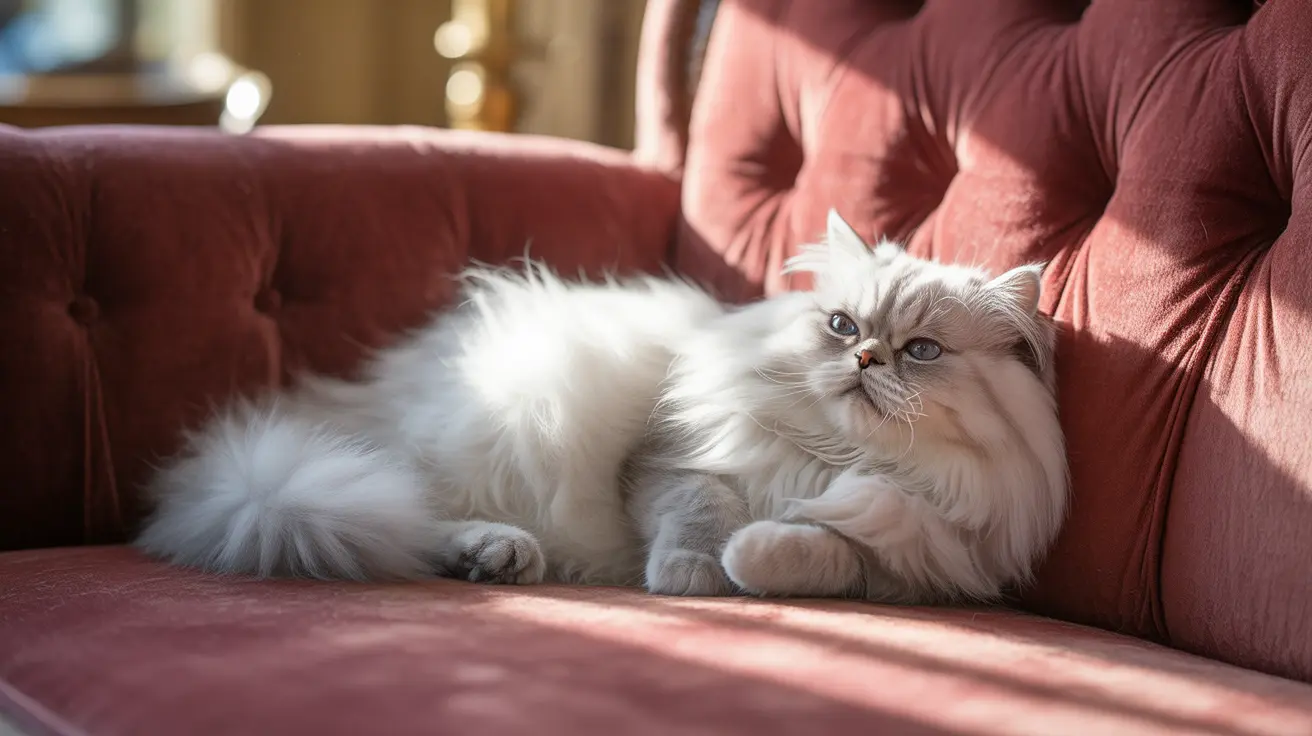If you've ever heard your feline friend making whistling or rumbling sounds while sleeping, you're likely witnessing cat snoring. While this behavior can be completely normal and even endearing, it's important for pet owners to understand when snoring might signal an underlying health concern.
Just like humans, cats can snore when air movement becomes partially obstructed in their upper respiratory tract. This article will explore the various causes of cat snoring, help you identify warning signs, and provide guidance on when veterinary intervention might be necessary.
Common Causes of Cat Snoring
Cat snoring typically occurs due to several common factors. Sleep position is often the most benign cause - cats sleeping in unusual positions may temporarily snore until they shift to a more comfortable position. Brachycephalic breeds, such as Persians and Himalayans, are naturally prone to snoring due to their flat facial structure and shortened airways.
Excess weight is another significant contributor to feline snoring. Overweight cats often develop fatty deposits around their upper airways, which can restrict airflow and lead to snoring. This is particularly concerning as obesity can lead to various other health complications.
Medical Conditions That Can Cause Snoring
Respiratory Infections
Upper respiratory infections are common in cats and can lead to temporary snoring due to inflammation and congestion. These infections often present with additional symptoms such as sneezing, watery eyes, and nasal discharge.
Foreign Objects and Growths
Sometimes, foreign objects like grass blades or seeds can become lodged in a cat's nasal passages, causing sudden-onset snoring. Additionally, polyps, tumors, or other growths in the nasal passages or throat can obstruct airflow and cause persistent snoring.
When to Be Concerned About Your Cat's Snoring
While occasional snoring isn't usually cause for alarm, certain signs should prompt immediate veterinary attention. Watch for:
- Sudden changes in snoring patterns
- Labored breathing or open-mouth breathing
- Excessive panting
- Decreased appetite or energy levels
- Unusual discharge from the nose or eyes
- Persistent coughing or wheezing
Prevention and Management Tips
Several steps can help manage or prevent problematic snoring in cats:
- Maintain a healthy weight through proper diet and exercise
- Keep your home environment clean and free from allergens
- Schedule regular veterinary check-ups
- Monitor your cat's breathing patterns during sleep
- Address any dental issues promptly
Frequently Asked Questions
Why do cats snore, and is it always normal?
Cats snore when there's partial obstruction of airflow in their upper respiratory tract. While occasional snoring can be normal, especially in certain breeds or positions, persistent or sudden-onset snoring may indicate an underlying health issue.
How can I tell if my cat's snoring is a sign of a health problem?
Watch for changes in snoring patterns, difficulty breathing, lethargy, loss of appetite, or accompanying symptoms like coughing or nasal discharge. These signs warrant veterinary attention.
What are the most common causes of snoring in brachycephalic cat breeds like Persians?
Brachycephalic breeds snore due to their anatomical features, including shortened nasal passages, smaller nostrils, and excess soft tissue in the throat. These physical characteristics can naturally restrict airflow.
How can I reduce or prevent snoring in my overweight or obese cat?
Focus on weight management through portion control, regular exercise, and a balanced diet. Consult your veterinarian for a safe weight loss plan tailored to your cat's needs.
When should I take my cat to the vet if they are snoring and showing other symptoms?
Seek immediate veterinary care if your cat shows signs of respiratory distress, open-mouth breathing, excessive panting, or if snoring is accompanied by other concerning symptoms like lethargy or loss of appetite.
Conclusion
While cat snoring can be perfectly normal, particularly in certain breeds or situations, it's essential to stay vigilant about changes in your pet's breathing patterns. Understanding the difference between harmless snoring and potentially problematic symptoms will help ensure your cat's respiratory health and overall well-being.






